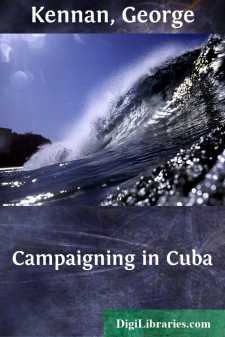Categories
- Antiques & Collectibles 13
- Architecture 36
- Art 48
- Bibles 22
- Biography & Autobiography 813
- Body, Mind & Spirit 142
- Business & Economics 28
- Children's Books 16
- Children's Fiction 13
- Computers 4
- Cooking 94
- Crafts & Hobbies 4
- Drama 346
- Education 46
- Family & Relationships 57
- Fiction 11829
- Games 19
- Gardening 17
- Health & Fitness 34
- History 1377
- House & Home 1
- Humor 147
- Juvenile Fiction 1873
- Juvenile Nonfiction 202
- Language Arts & Disciplines 88
- Law 16
- Literary Collections 686
- Literary Criticism 179
- Mathematics 13
- Medical 41
- Music 40
- Nature 179
- Non-Classifiable 1768
- Performing Arts 7
- Periodicals 1453
- Philosophy 64
- Photography 2
- Poetry 896
- Political Science 203
- Psychology 42
- Reference 154
- Religion 513
- Science 126
- Self-Help 84
- Social Science 81
- Sports & Recreation 34
- Study Aids 3
- Technology & Engineering 59
- Transportation 23
- Travel 463
- True Crime 29
George Kennan
George Kennan was an American diplomat, historian, and author, best known for his influential role in shaping U.S. foreign policy during the Cold War. He authored the famous "Long Telegram" in 1946, which outlined the policy of containment against Soviet expansionism, and later expanded on these ideas in his book "American Diplomacy." Kennan also wrote several historical works, including "Russia Leaves the War," which won him a Pulitzer Prize. As a leading figure in U.S. diplomacy, his insights significantly impacted the strategies of the Cold War era.
Author's Books:
Sort by:
by:
George Kennan
CHAPTER I STARTING FOR THE FIELD War broke out between the United States and Spain on April 21, 1898. A week or ten days later I was asked by the editors of the "Outlook" of New York to go to Cuba with Miss Clara Barton, on the Red Cross steamer State of Texas, and report the war and the work of the Red Cross for that periodical. After a hasty conference with the editorial and business staffs...
more...
by:
George Kennan
CHAPTER I THE OVERLAND TELEGRAPH LINE TO RUSSIA—SAILING OF THE FIRST SIBERIAN EXPLORING PARTY FROM SAN FRANCISCO. The Russian-American Telegraph Company, otherwise known as the "Western Union Extension," was organised at New York in the summer of 1864. The idea of a line from America to Europe, by way of Bering Strait, had existed for many years in the minds of several prominent telegraphers,...
more...



